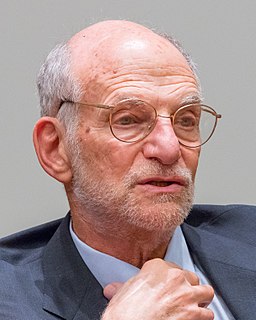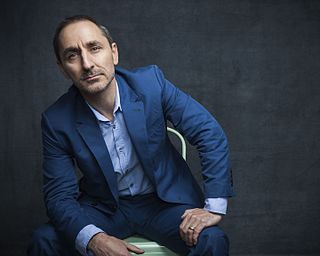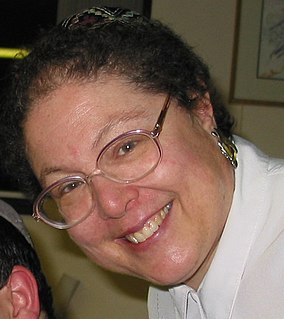A Quote by Tariq Ramadan
If you look at how we are destroying and disrespecting Creation it is obvious that is something is not clear in our understanding. We overemphasize rules but we don't understand the objective.
Quote Topics
Related Quotes
Not understanding the process of a spontaneously-ordered economy goes hand-in-hand with not understanding the creation of resources and wealth. And when a person does not understand the creation of resources and wealth, the only intellectual alternative is to believe that increasing wealth must be at the cost of someone else. This belief that our good fortune must be an exploitation of others may be the taproot of false prophecy about doom that our evil ways must bring upon us.
...it honestly didn't matter how we humans got to be the way we are, whether evolution or special creation was responsible. What mattered and mattered desperately was our future development. Were we going to go on destroying God's creation, fighting each other, hurting the other creatures of the His planet?
Worldviews have four elements that help us understand how a person's story fits together: creation, fall, redemption, and restoration. "Creation" tells us how things began, where everything came from (including us), the reason for our origins, and what ultimate reality is like. "Fall" describes the problem (since we all know something has gone wrong with the world). "Redemption" gives us the solution, the way to fix what went wrong. "Restoration" describes what the world would look like once the repair begins to take place.
Before we start anything creatively, we have a firm understanding of our objective and our frame of mind for the campaign. Who's our audience, and what's their day-to-day behavior? How can we complement those behaviors? How is our message more than an interruption? Why would people care about what we're saying?
Faith in the gospel restructures our motivations, our self-understanding, our identity, and our view of the world. Behavioral compliance to rules without heart-change will be superficial and fleeting… We can only change permanently as we take the gospel more deeply into our understanding and into our hearts. We must feed on the gospel, as it were, digesting it and making it part of ourselves. That is how we grow.
The genuinely significant creation, whether an idea, or a work of art, or a scientific discovery, is most likely to be seen at first as erroneous, bad, or foolish. Later it may be seen as obvious, something self-evident to all. Only still later does it receive its final evaluation as a creative contribution. It seems clear no contemporary mortal can satisfactorily evaluate a creative product at the time it is formed, and this statement is increasingly true the greater the novelty of the creation.
If we take the time to look deeply, we see that understanding and compassion arise from suffering. Understanding is the understanding of suffering, and compassion is the kind of energy that can transform suffering. If suffering is not there, we have no means to cultivate our understanding and our compassion. This is something quite simple to see
Is it possible that there is something we don't fully understand about God and about Life, the understanding of which would change everything? Is it possible that there is something we don't understand about ourselves, and about who we are, the understanding of which would alter our lives forever for the better? Yes. The answer is yes.
With this book in my hands, reading aloud to my friends, questioning them, explaining to them, I was made clearly to understand that I had no friends, that I was alone in the world. Because in not understanding the meaning of the words, neither I nor my friends, one thing became very clear and that was that there were ways of not understanding and that the difference between the non-understanding of one individual and the non-understanding of another created a world of terra firma even more solid than differences of understanding.
I don't like the idea of teaching religion in schools, and creation is not my thing, but that's a trivial point compared to saving the creation. I'd much rather have half of the people in the country be creationists and work really hard to save the creation than have everybody be evolutionists and be destroying the planet.






































